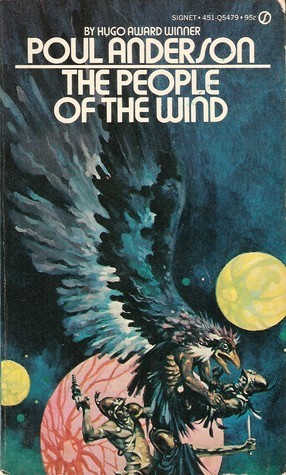What do you think?
Rate this book


176 pages, Mass Market Paperback
First published May 1, 1973

Il tempo: un futuro lontanissimo, quando la stessa fantascienza sarà divenuta leggenda di ere remote. Il luogo: lo spazio intergalattico, dove si prepara la più feroce guerra dell'universo. I motivi: l'impero terrestre, colonialista ed espansionista, non sopporta la vicinanza del dominio di Ythri, una federazione di mondi con un sistema sociale molto prossimo all'anarchia. Gli Ythriani, antico popolo di uomini-uccello la cui storia si è già intrecciata con quella umana, non hanno la forza militare necessaria per respingere l'invasione terrestre, e devono arrendersi. Tutto fa credere che per la civiltà ythri sia la fine, ma c'è un pianeta che è capace di tenere in scacco l'immensa flotta imperiale: è il mondo di Avalon, l'unico nella galassia dove Ythriani e umani convivono in armonia. Questo romanzo è una fantasia epica nella miglior tradizione della space opera, ma è anche lo struggente ritratto di un mondo dove si cerca di costruire un modello di civiltà la cui parola d'ordine è felicità.